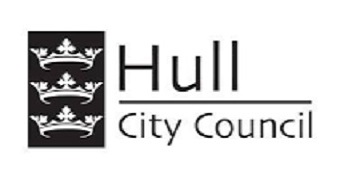We need ‘economic development practitioners without borders’
We live at a time when everyone has an opinion and everyone is an expert. At least that’s the case in the United States. Yet, on any worthy topic, there’s opinion (public opinion), there’s informed opinion (practitioners), and then there’s expert opinion (policy actors). Where are you in this spectrum? After all, it’s important to be specific in terms taking action. Let’s separate the wheat from the chaff such that what remains is useful, valuable, impactful, sustainable; let’s get on with it at higher levels of impact. Don’t look back.
Our profession is applied socio-economics. Theory is good, but only if it is integrated into active policy or programme mechanisms. Our primary role, as I see it, is to be pro-active and even aggressive, to effectuate broader and deeper socio-economic outcomes. If I’m mistaken, please let me know.
Unfortunately, too many claim to belong in our field, when in reality they merely carry out business development activities. Business development is one thing, but it isn’t economic development. Consequently, our beleaguered profession is greatly misunderstood, as we stand by in polite silence. I no longer stand by; I now speak up and speak out. I view myself as a referee, throwing the red flag on the field when I see an infraction. These days I buy red flags at wholesale prices.
Just as we tackle community challenges from a demographic baseline, as practitioners we also need to work from a common point of reference. Do we share a common understanding of core terms and concepts? Do we use common methodologies? Do we implement, monitor, assess, and hold ourselves accountable for results? Are we respected for our experience and expertise?
In advocating for a new paradigm, I strongly believe in meaningful economic policies for citizens having greatest socio-economic needs, not by stretching the safety net, but structurally, such that taxpayers are convinced that public funds are being constructively spent. The rub is in ‘constructively spent’, but if you have your protocol right, at least you’re dealing within top priorities. Taking these approaches takes professional solidarity, which does not yet exist. Professionalism needs to be a priority for us.
Conventional wisdom assumes that business development alone lifts enough boats to prevent social instability. This is only partially true. It’s like saying that business groups can police themselves. This old premise no longer holds water; we urgently need more effective mechanisms to produce broader, deeper, transformational outcomes. Verifiably higher standards-of-living and quality-of-life are our measures. We do not need more rules or Big Brother to drag us down.
Instead of constantly talking about what we’re going to do, let’s constantly talk about what we have already done at higher levels of know-how, such that when non-practitioners keep us from moving ahead, we throw the red flag, and respond to them. We work on the clock, and nothing is worse than wasting our precious time.
Ideally, we ought to hold a comparable level of respect as emergency medical responders, saving or protecting community lives. Knowing how precarious our economic conditions will continue to be, we should be working as ‘Economic Development Practitioners Without Borders’, moving in to stabilise fragile economic regions. If this approach worked after World War II, why can’t it work now? Do we need a disaster to occur first, or can we take care of the patients when they have a fever?
Lastly, let’s put Top Ten lists together, depicting best and worst ideas, websites and initiatives. Let’s prove that we have our act together and that we value quality performance standards.







 Network
Network

In principle it sounds a good idea, but it exponents need to be objective and at least acknowledge that the post-war period experience was far from being homogenous and that US heavy-handedness and US domestic politics resulted in outcomes that were not advantageous to the supposed beneficiaries of the Marshall Plan.
UK’s experience of the post-war period is markedly different to that of Germany, and for many US demands in 1945 left a profoundly bitter aftertaste. It should be forgotten that the weight of war debt and the terms of Bretton Woods prevented UK from recovering its former industrial position. There remain a sense among the post-war generation that the US betrayed the wartime alliance, and that following Roosevelt’s death the US became quite anti-British.
Whereas in Germany as the Cold War emerged US dominance led to the Germans not addressing the core value & infrastructure issues that subsequently bedeviled them.
For British migrant workers in Germany in the 1970’s, they were struck by the absence of bombsites & the left overs of WW2 that still littered parts of UK. (My first job in 1971 was breaking up anti-aircraft battery emplacements, round the corner from I lived) The US demand that all imperial currencies become dollar convertible from 1945 simply provided US industry (that had not fully gone over to war production) with the opportunity to grab UK industries traditional markets at the moment when UK attempted to carry out the transition for a full wartime economy to a peacetime economy.
French experience is different again, and despite benefiting considerably from Marshall Aid it did not result in France developing a positive attitude towards the USA.
How does one prevent the funders and facilitators of reconstruction from seeking to dominate policy making?